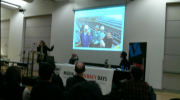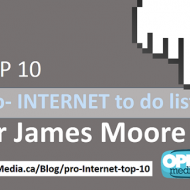Unreliable service. Slow speeds. Appalling customer mistreatment. And some of the highest prices in the industrialized world. It's no wonder Canadians are fed up with the stranglehold that a handful of giant conglomerates exert over our telecom market.
With so little competition, Big Telecom has long been able to keep prices high without fear of customers jumping ship to a more affordable alternative. But that could be about to change. A landmark ruling from the Canadian Radio-television and Telecommunications Commission (CRTC) has thrown the door open for communities across Canada to take their digital future into their own hands.










Comments
Do
Don't